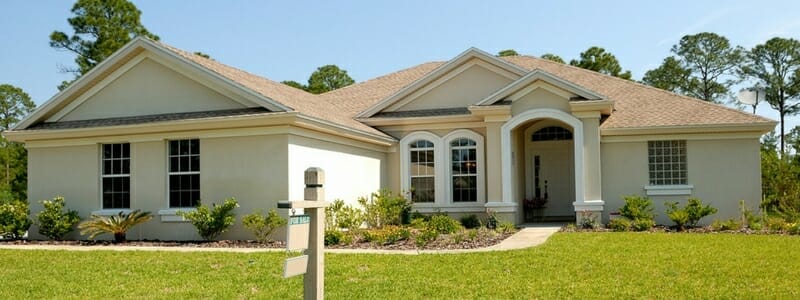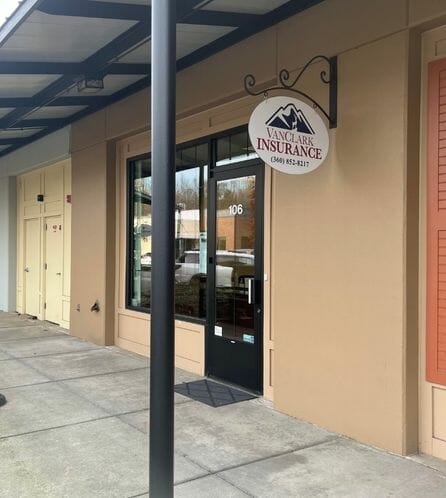
At VanClark Agency we asked all the time about homeowners insurance. If you have questions, it's important to ask and get the information you need in order to obtain the best coverage for your family. Here are some of the questions we get about homeowners Insurance.
A home insurance policy is coverage from risks and perils that can occur involving the dwelling you reside in. Some perils that are covered but not limited to, fire, wind, and other hazards.
Home insurance covers many aspects of potential loss. It depends of the type of home insurance policy that it's offered. The basic parts of a home insurance policy include but not limited to; dwelling coverage, personal property/content coverage, and liability coverage.
A large proportion of insureds pay for the typical home policy through their escrow account with their mortgage company. This allows for a simple switch of policies if an insured wishes to switch home Insurance Providers. Other insureds pay for their home insurance directly to the insurance carrier.
Home insurance is bought typically through an insurance agency like VanClark Insurance. Give us call today so we can discuss your options for paying the lowest cost for the best coverage.
Fire is a peril that is typically covered in most home insurance policies. It really depends on the home policy that is purchased with the carrier protecting the dwelling.
An all perils deductible is the amount of financial responsibility the insured will incur at the time of a loss that results from a covered peril on the home insurance policy.
Personal property on a home insurance policy is usually covered at blanket amount listed. This amount in a typical home policy has special limits on items of personal property in the home. The simplest way to think about what personal property is in a home policy, are the items that would be taken from the home if the insured were to move from one dwelling to another.
Dwelling coverage is the coverage is for the structure (the home itself) that is being resided in.
A dwelling extension the other structures on a home policy. This is usually anything that is detached from the dwelling itself. A few examples are sheds, garages, or utility shops that are on the same premises as the main structure or the dwelling.
A dwelling fire insurance typically provides coverage for named perils (causes of loss) to structure that is resided in by the insured or tenant of the insured.
A dp3 is a dwelling fire policy that covers a structure that is rented out to others, not the named insured, on the policy.
Rental dwelling insurance provides coverage for a residence that is being rented out to individuals who are not the named insured on the policy. This is also known as a Landlord Policy
Landlord insurance provides coverage for the named insured that owns a dwelling that is currently rented out to others.
The cost for insurance for a rental property could be more or less depending on the carrier and the rating factors they use to determine premium.
The cost of rental property depends on many underwriting factors based off of the insured and the dwelling being insured. The best way to discover the cost of a rental dwelling policy is through a simple phone call to VanClark Insurance Agency. 360-852-8217
A landlord insurance policy is a policy that covers a rental dwelling for a landlord that owns the structure.
The cost of property insurance involves many underwriting factors that assess risk and the coverage amount needed to protect against perils or risk for a home. To find out how much property insurance will cost please give VanClark Insurance Agency a call 360-852-8217.
Home insurance pricing depends on a number of variables that the carrier will use to gauge costs based off of the information. Give us a call for a no cost quote to find a great cost for the coverage on your home insurance
The amount of home insurance needed depends on the amount of coverage that is needed to rebuild a structure that is covered by the policy. This amount is usually assessed with cost calculator estimators that involve calculating rebuild costs.
The pricing amount of home insurance is dependent on numerous variables such as: coverage amounts, and risk amounts for the insured and dwelling.
You do not have to purchase home insurance by law. It is not recommended to go without home insurance. The cost is usually low considering the loss amount involved with a covered claim. If there is a loan or mortgage on the home the insured is required to have home insurance, otherwize the financial institution backing the loan or mortgage will force place insurance on the dwelling. These policies typically are high priced with minimal coverage.
It is not illegal to go without home insurance, however it is highly recommended to continue to carry home insurance on ones owned dwelling.
Hazard insurance is protection from specific perils or losses including fire, lightning, wind. Homeowners insurance is referred to as hazard insurance by other industries.

